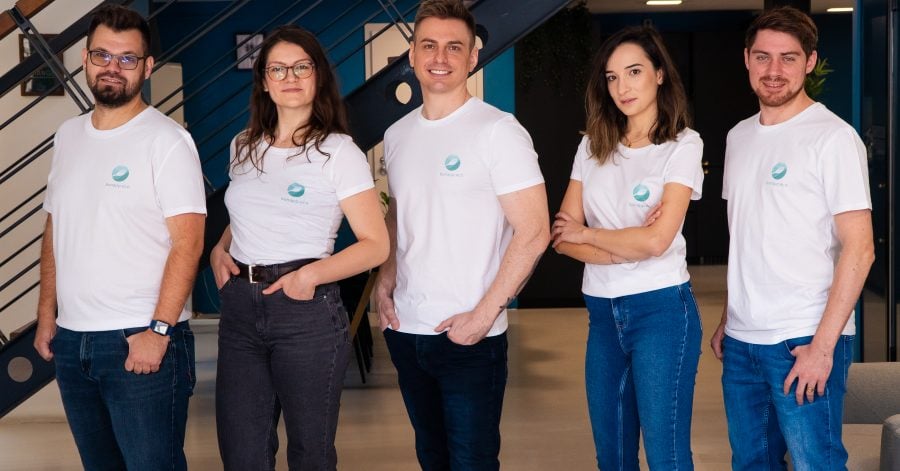In an effort to turn the sustainability challenge around food waste into an economically-feasible business opportunity, Romanian startup bonapp.eco launches a mobile app for purchasing food close to expiration date from retailers. Already 35 businesses in Bucharest joined the initiative. Expansion plans include rolling-out across Eastern Europe next year, as well as signing up 5000 locations, and selling 30 million meals by 2023.
The startup benefits from its founders deep experience with entrepreneurship and leading technology companies. Grégoire Vigroux is a business angel and the founder behind Recommerce Group (former Fenix.eco). He is joined by former KPMG senior tech consultant Diego Roy de Lachaise and former Apple executive Zsolt Kadar.
Preventing food waste, while saving money
Bonapp.eco works as a mobile application that connects consumers to nearby grocery stores, restaurants, bakeries, cafés or hotels. You can place orders for a variety of food items including supermarket products, fresh pastries, and hotel breakfasts, at a discount between 40% and 80%.
Consumers will already be able to find Accor, Cora, PENNY Romania, foodpanda, Starbucks, or Up (Former Chèque-Déjeuner) in the list of partner retailers. Starting Q1 2022, bonapp.eco plans to expand to other cities in Romania, while in Q2 they are eyeing the wider Eastern European region.
In the Romanian market, the startup estimates a market potential of 5 million users, and targets mainly urban citizens who want to purchase quality food, while saving money.
Increasing awareness about food waste challenges and educating citizens on food waste prevention is also part of the startup’s plans.
“In Romania, 38% of the food waste happens in people’s homes. bonapp.eco aims to inspire consumers to reduce their food waste, by collaborating with other local organizations and encouraging responsible food consumption. It is indeed a matter of habit and beliefs. But the good thing about these is they can be changed.
Our online communication and upcoming public relations actions are, also, primarily focused around household food waste prevention. Awareness and access to resources in terms of simple, small-scale solutions is where we aim to intervene first,” Grégoire Vigroux, co-founder of bonapp.eco tells The Recursive.
Turning to a solution that can incentivize food waste prevention in order to save food, as well as generate savings for consumers and retailers alike, can be a win-win-win for everyone involved.
Food waste – a severe challenge worldwide
Reducing food waste is seen as playing a significant role in improving global food security. Despite rising levels of hunger around the world in the past five years, we waste around 40% of food produced worldwide, or 2.5 billion tons of food each year.
Out of this, ~37% is accounted for by retail, food services, and households. One of the UN’s ambitious targets on Agenda 2030 is to reduce retailer and consumer food waste by 50%.
The food sector is also carbon intensive, making it top priority in climate change mitigation plans. Food production accounts for one quarter of GHG emissions. Food waste on its own is responsible for 10% of all emissions.
In Romania, about 5 millions tons of food are thrown away every year. This doesn’t only cost the planet, but also consumers’ pockets. Romanians spend 40% of their budgets on food and beverages, Grégoire Vigroux said in the press release.
Launching and scaling innovative solutions against food waste prevention is an important aspect of building a resilient food system. Elsewhere in Bulgaria, Sofia2Go adopts a similar model to combat food waste in the HoReCa sector by creating a marketplace for restaurants, cafes, and hotels, where they can sell surplus food.
If you want to keep reading on the topic, discover the story of innovators turning insects into food products, and the major trends that will determine the future of food.








